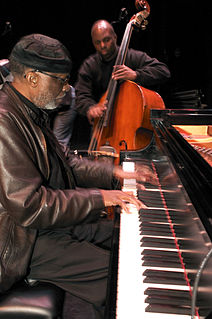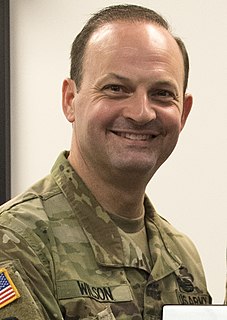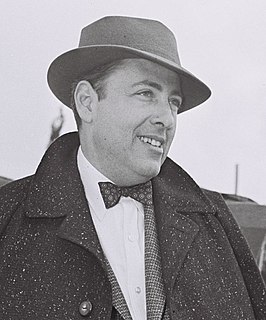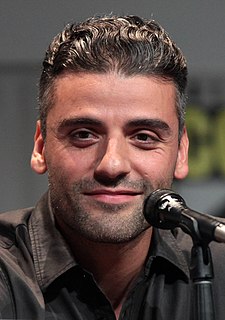A Quote by Ahmad Jamal
Mr. McVicker instilled self-respect in those of us who were his students, because he respected us regardless of our background.
Quote Topics
Related Quotes
There are a lot of voices inside of us. We have the voices of our parents, our grandparents, our society, our bosses, our own should's and shouldn'ts, and our self-worth is in us, controlling us a lot. When we can get past all of those, and get to the deep, core part of us, there's a voice within our soul that I believe is connected to our Divine or Higher Self. That voice within is there to guide us through all aspects of our lives.
Before making peace, war is necessary, and that war must be made with our self. Our worst enemy is our self: our faults, our weaknesses, our limitations. And our mind is such a traitor! What does it? It covers our faults even from our own eyes, and points out to us the reason for all our difficulties: others! So it constantly deludes us, keeping us unaware of the real enemy, and pushes us towards those others to fight them, showing them to us as our enemies.
Let us fill a cup and drink to that most noble, ridiculous, laughable, sublime figure in our lives... The Young Man Who Was. Let us drink to his dreams, for they were rainbow-colored; to his appetites, for they were strong; to his blunders, for they were huge; to his pains for they were sharp; to his time for it was brief; and to his end, for it was to become one of us.
A lot of people write and tell us what The B-52s meant to them - straight, straight-A students, those who were a little awkward, weren't always the ones who fit in. People have told us that just having us and our music was beyond important and really made me feel that what we were doing was worth something big.
...Those laws are within the grasp of the human mind. God wanted us to recognize them by creating us after his own image so that we could share in his own thoughts... and if piety allow us to say so, our understanding is in this respect of the same kind as the divine, at least as far as we are able to grasp something of it in our mortal life.
It is the Fourth Instinct (the spirit - RJ) that urges us to exceed ourselves ... by awakening our intuitive selves, and striving to be all that we were intended to be. It takes us beyond self-centeredness and enables us to resist the combined forces of indifference and meaninglessness. It awakens us to a sense of responsibility for those most in need of our society as well as for that world that future generations will inherit.
We were really helped when President Ronald Reagan came in. I remember non-commissioned officers who were going to retire and they re-enlisted because they believed in President Reagan. That's the kind of President Ronald Reagan was. He helped our country win the Cold War. He put it behind us in a way no one ever believed would be possible. He was truly a great American leader. And those of us in the Armed Forces loved him, respected him, and tremendously admired him for his great leadership.
I think we did our first session in 1958. There were no black background singers - there were only white singers. They weren't even called background singers; they were just called singers. I don't know who gave us the name 'background singers,' but I think that came about when The Blossoms started doing background.
Stressing the practice of living purposefully as essential to fully realized self-esteem is not equivalent to measuring an individual's worth by his or her external achievements. We admire achievements-in ourselves and others-and it is natural and appropriate for us to do so. But that is not the same thing as saying that our achievements are the measure or grounds of our self-esteem. The root of our self-esteem is not our achievements but those internally generated practices that, among other things, make it possible for us to achieve.




































